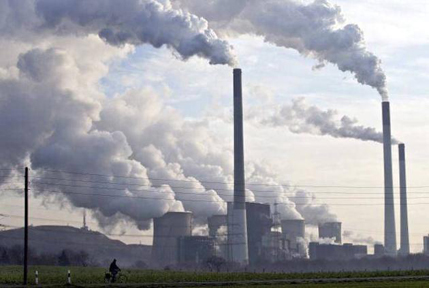The differentiated impacts of climate change
by Mridula Ramesh
European lead is a
positive step but Indian consequences still dire
We have often looked at the differing impacts that climate change had
on various countries and framed the discussion through the lens of a
prisoner's dilemma: two prisoners in separate cells; if they cooperate
they're free if they don't they both go to jail.
This time we ask: "What do the prisoners do in this dilemma, and
where does that leave the world?" The US "prisoner" has muddled
incentives - parts of him lose heavily in the changing climate, parts
are unaffected while some powerful parts of him stand to lose if status
quo is altered. The payoff of the Chinese "prisoner" is uniformly
negative if status quo persists - so he
would prefer to see cooperative action on climate change. What of the
two other "prisoners" - the EU and India?
 European countries look like the poster children of action on climate
change. Emissions of greenhouse gases (the causative agents of global
warming) are down since 1990 and; a further binding 40% reduction in
greenhouse gases (from 1990 levels) is targeted by 2030. European countries look like the poster children of action on climate
change. Emissions of greenhouse gases (the causative agents of global
warming) are down since 1990 and; a further binding 40% reduction in
greenhouse gases (from 1990 levels) is targeted by 2030.
Europe achieved its targets for three reasons: the 2009 financial
crisis and the 2011 Euro crisis caused the European economy to falter
(and lowered the amount of energy it used), the outsourcing of
production of a substantial fraction of the "stuff" consumed by European
customers (and the emissions associated with producing the stuff) and
the pursuit of renewable power. How they perform in future will depend
on what their "payoff" is.
Air pollution (some of which exacerbates global warming) causes half
a million deaths in Europe annually; Glacier melting and the flooding of
rivers and rising sea levels threaten low lying countries like the
Netherlands (where up to an eighth of the country lies below sea level).
Intense water scarcity and increasing summer temperatures hurt
agriculture and tourism income of Southern Europe. Many northern
European countries benefit with lower heating costs, higher agricultural
productivity and longer tourist seasons. There are winners and losers
within Europe, but because Europe is developed, the losers can manage
the changes.
Given the manageable negative payoff from climate change, why is
Europe acting? Part of it maybe a desire to gain prominence in the world
stage, a stage increasingly being dominated by the US and China. They
can get leadership credibility only if they lead by example.
Second, a higher sense of social equity in European countries may be
driving action through a social justice angle. Third, European companies
stand to gain from action on climate change. Some of the world's leading
wind energy manufacturers and LED lighting companies are European. 92%
of responding Euro 300 companies report that climate regulation presents
an opportunity to their business.
- The Hindu
|

